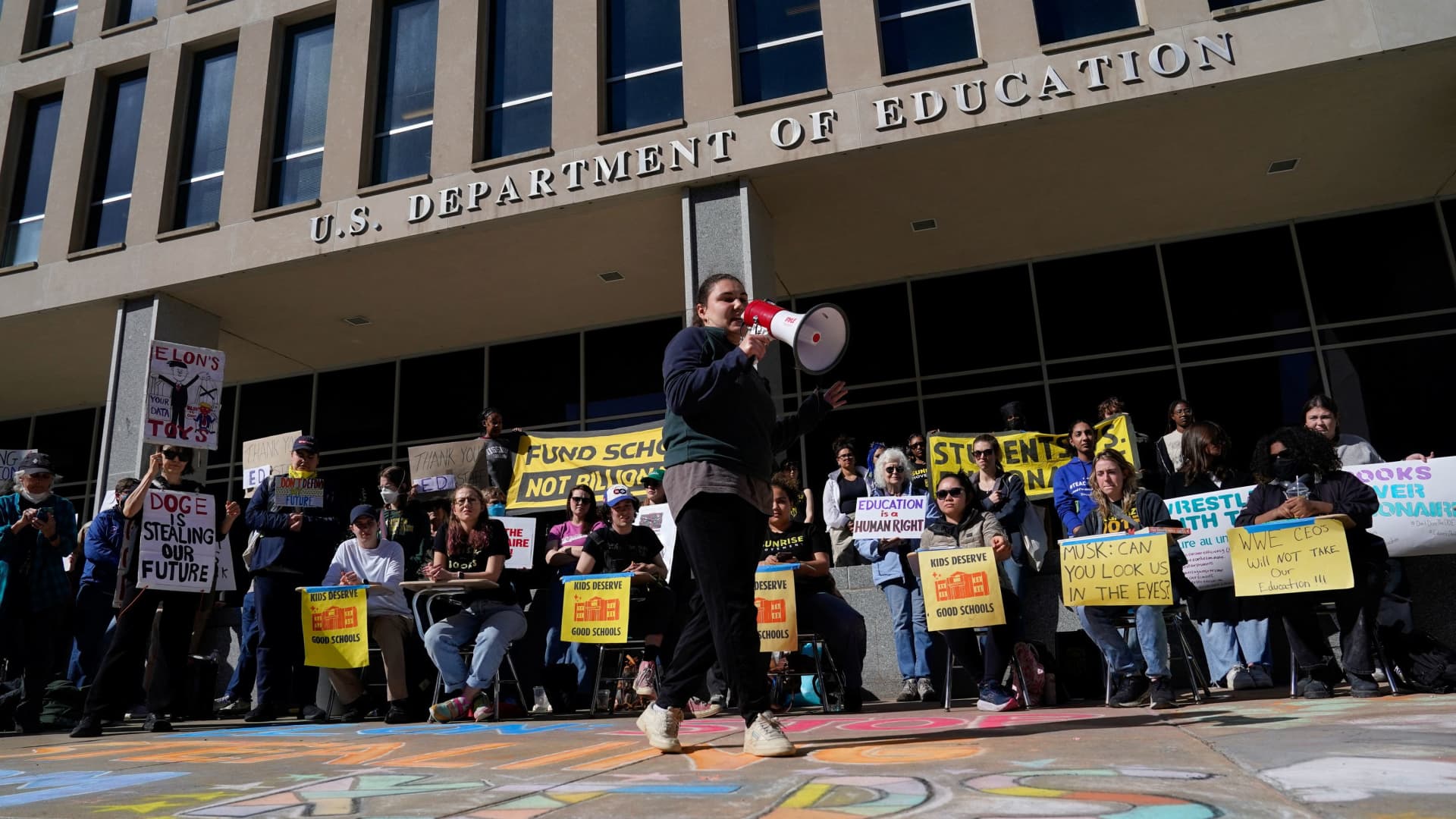Grace Cary | Moment | Getty Images
Travelers, be warned: The federal government may revoke your passport if you ignore a big tax bill.
Such punishments have become more frequent in recent years, experts said.
Federal law requires the IRS and Treasury Department to notify the State Department if an American has a “seriously delinquent tax debt.”
This is a large federal debt — of more than $62,000 in 2024 — that the taxpayer has repeatedly ignored.
The debt threshold includes aggregate total federal tax liabilities, plus penalties and interest, levied against an individual. It’s adjusted annually for inflation.
The State Department generally won’t issue a new passport and may revoke or limit an existing one in cases of serious delinquency, according to the IRS.
The government typically uses this enforcement mechanism — which has been in place since 2018 — as a sort of last-ditch effort to collect unpaid tax levies, experts said.
Should those debts remain unpaid, the potential consequences are ample: Travelers might not be able to take trips overseas until they’ve resolved their debt. Expats and those who travel abroad for business may have to return to U.S. soil indefinitely until their tax case concludes, for example, experts said.
Revoking a passport is “a step of last resort,” said Troy Lewis, a certified public accountant based in Draper, Utah, and an accounting and tax professor at Brigham Young University.
“How do you get rich folks’ attention regarding paying their taxes? Just make sure they can’t summer in Europe,” he said.
‘It gets people to call the IRS’
Demand to travel abroad has surged as the Covid-19 pandemic has waned. Americans applied for about 21.6 million U.S. passports in fiscal 2023 — a record number, according to the State Department.
Todd Whalen, a CPA based in Denver, has seen tax enforcement efforts involving passports ramp up over the past three years.
“This is becoming more and more of a big deal,” said Whalen, founder of Advanced Tax Solutions, which helps consumers and businesses resolve tax debts. “We’ve gotten several [cases] this year.”
More from Personal Finance:
Here’s how the election could affect your taxes
How to use RMDs to improve your portfolio
4 ways to use leftover money in a 529 plan
In one instance, a client only found out his passport had been revoked while at the airport trying to fly to Mexico for a trip to celebrate his son’s high school graduation.
“It works,” Whalen said of the collection effort. “It gets people to call [the IRS].”
A State Department spokesperson declined to provide annual statistics on how many taxpayers had their passports revoked or denied. The IRS didn’t comment by press time.
All other collections must have been ‘exhausted’
J. David Ake | Getty Images News | Getty Images
It can be “quite easy” for overdue tax debts to exceed the $62,000 threshold, according to Virginia La Torre Jeker, an attorney who specializes in U.S. international tax law.
Americans living abroad, for example, may have “significant penalties” for not filing various foreign information returns, she said in an email.
Debts can also include any tax levies owed by individuals, she added. Those may be business taxes for which the taxpayer is personally liable or trust fund recovery penalties, she said. (The latter relate to withheld income and employment taxes like Social Security taxes or railroad retirement taxes.)
How do you get rich folks’ attention regarding paying their taxes? Just make sure they can’t summer in Europe.
Troy Lewis
accounting and tax professor at Brigham Young University
However, revoking a passport isn’t generally the government’s first way to collect such overdue debts, experts said.
The IRS must have already “exhausted” all other typical collection activities, said Lewis, owner of Lewis & Associates, CPAs.
Generally, that would mean the taxpayer hasn’t responded to prior IRS notices of a federal tax lien, for example. (A lien is the government’s legal claim to a debtor’s assets like real estate and other personal property. It isn’t a move to collect said property, though.)
Various courts have upheld the federal government’s ability to revoke passports in order to collect tax debts as constitutional, Lewis said.
He pointed to two recent cases as examples: Franklin v. United States in the U.S. Court of Appeals for the 5th Circuit and Maehr v. United States Department of State in the U.S. Court of Appeals for the 10th Circuit.
In the former, the defendant, James Franklin, owed about $422,000 in taxes for failing to file accurate tax returns and report a foreign trust of which he was the beneficial owner. The IRS ultimately filed a tax lien and levied his Social Security benefits, and the State Department later revoked his passport.
“It seems pretty well established this is something [the government] can do,” Lewis said.
Travelers have remedies available
The State Department doesn’t revoke a passport straight away. When the IRS certifies debt as seriously delinquent and alerts the State Department of that, it will mail the taxpayer a notice — CP508C — outlining the potential implications of that classification.
If an individual then applies for a passport, the State Department would generally deny and close that application if the person doesn’t make efforts to pay their debts. Such efforts might include paying the balance in full, entering into a payment plan or making a compromise agreement with the IRS.
The debtor would still be able to use an active passport, if they have one, unless notified in writing by the State Department that their passport had been revoked or limited, the IRS said.
“IRS looks at various factors, including taxpayer noncompliance in the past and taxpayer failure to cooperate with the IRS” when opting to revoke a passport, according to La Torre Jeker.
The State Department can limit the passport’s use only to return travel to the U.S., thereby preventing the person “from being trapped in limbo” if outside the country, she said.
The IRS sends taxpayers Letter 6152 before revocation, asking them to call the IRS within 30 days in order to resolve their account and avoid passport cancellation, she added.
Still, sometimes passport denial catches debtors by surprise when they travel, said Whalen at Advanced Tax Solutions.
For example, the IRS may have the wrong address on file — especially if a taxpayer has moved — and mail notices to the wrong place, Whalen said.
“A lot of times, they don’t know they have a balance due until they … show up at the airport,” he said.


 Blog Post7 days ago
Blog Post7 days ago
 Economics1 week ago
Economics1 week ago
 Finance1 week ago
Finance1 week ago
 Economics1 week ago
Economics1 week ago
 Economics1 week ago
Economics1 week ago
 Personal Finance1 week ago
Personal Finance1 week ago
 Economics1 week ago
Economics1 week ago
 Accounting1 week ago
Accounting1 week ago












